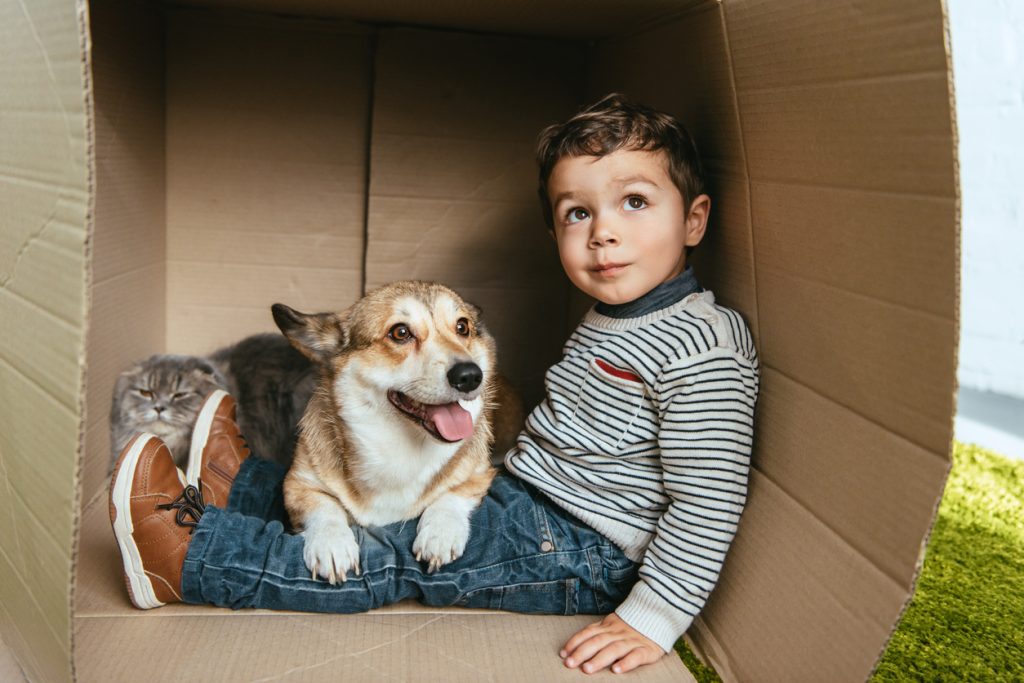How Can I Help my Child Understand the Loss of Pet?

How Can I Help my Child Understand the Loss of Pet? Accepting the loss of a pet is hard enough for adults. For children, a first experience of loss and death is especially difficult and traumatic. Even as you’re feeling your own grief you have to help them come to terms with their own.
Make your discussions about death age appropriate
Preschool children simply need to understand that their pet has died and that they won’t return. It’s normal for young children to fear that if a pet suddenly disappears the same thing might happen to a sibling or parent. Lots of reassurance that this won’t happen may be required.
Older children also simple explanations, but are likely to have more questions. Beware of euphemisms like ‘put to sleep’ when discussing pet euthanasia, as this could create a morbid dread of bedtime.
As children get older their emotions become more complex and mixed. Fear, guilt and anger can all get intermingled with grief. Your child may need you to reassure them that it’s not their fault that their pet died, this isn’t a punishment, from god or any other source. Just a very sad thing that happens because pets don’t live as long as people do.
Involve older children in decisions
Older children are likely to feel left out and angry if they’re excluded from decisions about pet euthanasia. They almost certainly regard your dog, cat, hamster or guinea pig as at least much their companion as yours. A focus on ending suffering rather than ending life is likely to be helpful.
Out of the mouth of babes…
Don’t be too surprised if the discussion turns to complex ethical area, such as why euthanasia is acceptable for pets with no quality of life but not for people. Many adults wonder the same thing. The simplest route here might be to explain that when we take responsibility for a pet it means making decisions for them that they don’t have the power to make for themselves.
Your children will learn about grieving from you
Talking about your own sadness will help your children to express their own feelings. It’s absolutely OK to cry in front of your children but out-of-control expression of grief will frighten them. Your children need to you to model that grief can feel almost overwhelmingly painful but that over time these feelings will subside.
How Can I Help my Child Understand the Loss of Pet – Let your child lead the way
Keep your initial explanations simple and direct. So long as your child feels safe to ask questions they’ll do so if they want more information
Practical ways of dealing with grief
Reading books about the loss of a pet – these aren’t a substitute for direct communication but can be an excellent starting point for your own discussions.
Writing stories, making scrap books – Doing this together can provide a chance to share tears and remember happy times.
Hold a ceremony – A simple way of coming together, acknowledging both the sadness of your loss and the happiness your pet brought to your lives.
Making a memorial – A beautiful plant in the garden can be as effective as a gravestone. Ask your children what they think would be appropriate
Should you let your child be present at a pet euthanasia?
How Can I Help my Child Understand the Loss of Pet? If you’re confident that you will be able to temper your own grief, your child is old enough to make the decision and wants to be present, and your vet is able to assure you that your pet’s euthanasia is likely to be as gentle and painless as the procedure usually is, there’s no reason why not.
There are only two cast iron rules. These are that your child should be offered the opportunity to say goodbye to their pet if this is possible, and they should only be present at their actual passing if they want to be
Cloud 9
To ensure accuracy, a professional vet has reviewed and verified the information presented in this article. It is important to note that when it comes to making decisions about euthanasia for your pet, there are no easy answers. It is always recommended to seek advice from your own veterinarian before making any decision.


